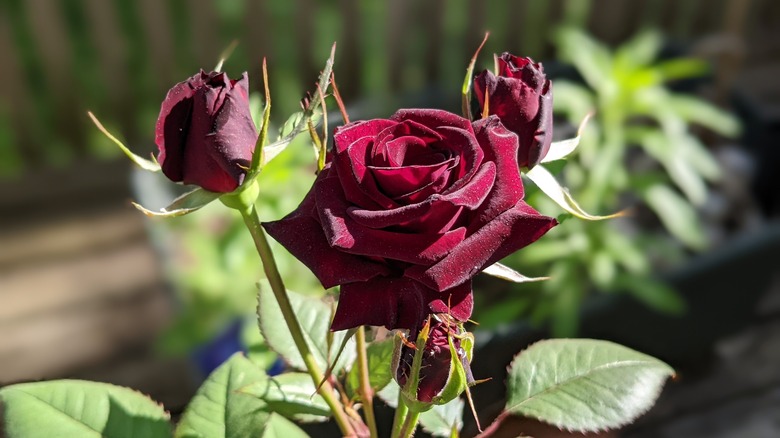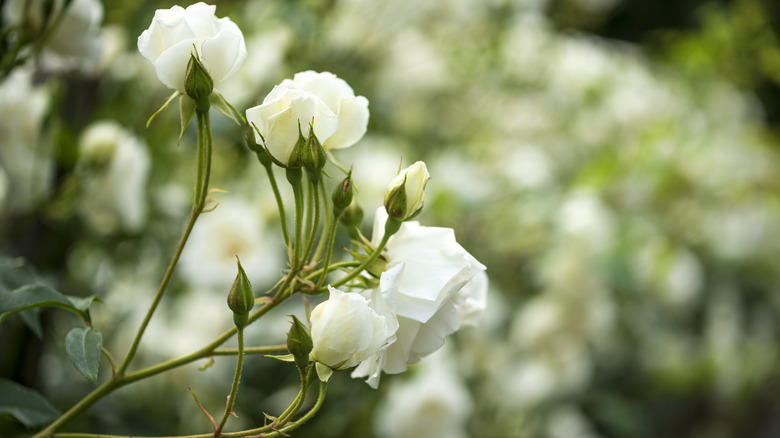A singular black rose symbolizes power and mystery. While you may come across these flowers at a florist, growing natural stark black roses in your yard isn’t possible. You’ll have to compromise for dyed flowers or a variety with burgundy petals. Flower dye is the simplest way to fill your home with these mystical roses. Then you can pick up a white variety from your local nursery and turn their petals pitch black. If you want to see the dark flower growing in your yard, you’ll need to plant black baccara roses. They’re easy to care for and will look darker when the weather is colder.
There is only one true black rose that grows naturally. It is the halfeti rose that only grows in a small village in Turkey of the same name. Even then, the flowers are usually dark red. Then in the summer, they bloom with black petals. This specific variety can achieve this color because of the soil in south Turkey. It contains anthocyanins that react to the pH of the dense soil, adding pigment to the blooms. Since even this variety needs these specific conditions to produce truly black roses, the best option for you to grow at home is black baccara roses or dyed white ones.
Growing the black baccara rose

Black baccara roses are your best option for growing dark roses. They won’t have pitch-black petals, but their burgundy color is as close as you can get naturally. You’ll need to live in USDA zone 7B to grow them in your yard. This is because these flowers thrive in warmer weather. Alternatively, you can use a greenhouse if you live in a colder climate.
For beautiful blooms, make sure you plant your black baccara rose bush in an area with direct sun. They prefer sunlight all day with minimal to no shade. The spot you choose should also have well-draining soil that has a pH between five and eight. If you’re planting it in a container, combine one part compost with two parts soil to ensure your potting mix has enough nutrients.
How often you water your roses depends on how hot it is. During the summer, expect to do this every two days. You may have to do it daily if the temperature exceeds 95 degrees Fahrenheit. Then you can reduce the watering to every three or four days when it’s cooler out. It’s also important to use a balanced 10-10-10 fertilizer. Start diluting it in water when spring begins and stop once you see rosebuds developing. Remember to prune the foliage and remove dying flowers to increase the number of black roses your plant produces. That way, all the energy is directed to growing new blooms.
Dye white roses black

Another way to grow black roses is by dying white ones. Then you’ll be able to have pitch-black petals. It may sound counterintuitive to start with a white flower, but this creates an even canvas for you to add color on top of. Start by growing the variety of your choice. Roses need at least six hours of sunlight. Keep the soil moist without overwatering, and don’t forget to use a balanced fertilizer once every six to eight weeks.
The perfect time to pick your flowers is just before they open all the way. This is when you need to dye them so the petals can absorb the color. It’s essential to read the label when choosing a flower dye because some are toxic to roses. Once you have a safe version, fill a vase with water and add the amount recommended by the manufacturer.
Then put the roses inside to soak for a few hours overnight. The exact time depends on how strong the dye is, so follow the instructions on the label. Then move them to a vase with clean water. They’ll need a couple of days for the dye to transfer onto the petals before blooming into beautiful black roses.
